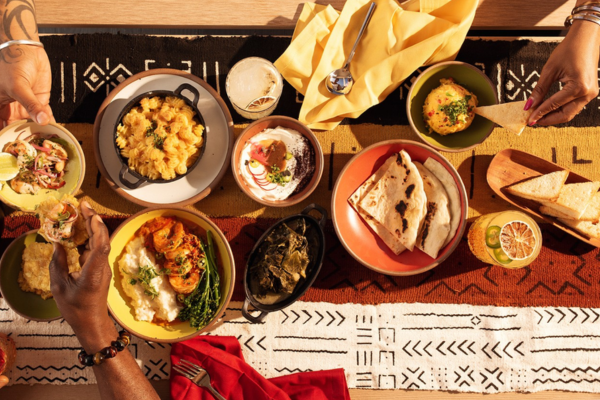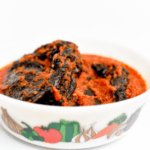African cooking has long prioritized using high-quality, locally sourced ingredients. The increasing number of people living in Africa drives up the price of really African foods. This article discusses the journey of African cuisines in the diaspora from farm to fork, focusing on the difficulties, triumphs, and repercussions encountered by African immigrants and the global food system. To really appreciate how these items bring people together, preserve cultural traditions, and give the world a taste of Africa, one must grasp how they are sourced, transported, disseminated, affect cuisine, liberate communities, and sustain culture.
Importance of Authentic African Ingredients in the Diaspora
The African diaspora is made up of African immigrants to the US, Canada, Europe, and beyond. Food is more than just nutrition for these people; it’s a way to preserve and carry on their cultures. African ingredients are needed to create home-style meals. Traditional African cookery relies on maize, millet, sorghum, berbere, suya spice, ras el hanout, baobab, tamarind, and okra.
Journey of African Ingredients in the Diaspora


Sourcing African Ingredients
The difficulty of consistently and responsibly obtaining African components is a major barrier to their export to the diaspora. Because of their familiarity with sustainable farming techniques from their homelands, many African immigrants have developed a taste for locally sourced, organic foods. Companies and organizations that focus on importing materials from Africa to satisfy this need have proliferated.
These organizations partner with African farmers and cooperatives to get sustainably and ethically grown products. To aid small-scale farmers and advance sustainable agriculture, direct trade connections and fair trade procedures are frequently adopted. These businesses help African farmers and their communities by buying directly from them, ensuring that their products are fresh and supporting local economies.
Transportation and Logistics
The practicalities of getting the African components to the kitchen are just as important as finding them in the first place. Perishable goods like fresh vegetables, spices, and herbs need to be transported quickly and carefully to avoid spoilage. To guarantee that their ingredients arrive at their destinations in pristine form, companies that specialize in distributing African ingredients invest in robust supply systems and temperature-controlled storage facilities.
In order to ensure fast and effective distribution across continents; this requires forming strategic agreements with shipping firms, airlines, and local distributors. This logistical work is crucial in bridging the gap between African farms and the diaspora’s dinner tables. In addition, developments in technology have simplified the transportation process by allowing for the real-time tracking and monitoring of cargo to guarantee their secure and timely delivery.
Distribution and Accessibility
The success of African dishes in the diaspora depends on their extensive availability and dissemination. It may be easier to reach larger cities with huge African immigrant populations where there are already African-specific supermarkets and markets.
E-commerce and online marketplaces have become useful instruments for increasing the availability of African ingredients since they allow people to place orders for a variety of goods from anywhere in the world.
The visibility and availability of these foods have been increased thanks to cooperation between African ingredient wholesalers and local grocery chains or supermarkets. African immigrants may promote their cuisine and introduce more people to African ingredients through participation in community projects and cultural events.
Culinary Influence and Integration
African ingredients not only contribute to the authenticity of traditional African dishes but also have a significant impact on the wider culinary landscape in the diaspora. The introduction of these ingredients has led to a fusion of flavors and the creation of innovative recipes that blend African and international cuisines. African spices such as berbere, harissa, and suya spice have found their way into non-traditional dishes, adding depth and complexity to a variety of recipes.
African fruits like baobab and tamarind have gained popularity for their unique flavors and nutritional benefits, finding their place in beverages, desserts, and even health foods. The versatility of African ingredients has contributed to the diversification of culinary offerings in the diaspora, enriching the food scene and offering new experiences to food enthusiasts.
Community Empowerment and Economic Development
African ingredients in the diaspora not only help to satisfy hunger but also help to strengthen communities and boost economies. The demand for real African ingredients generates jobs and promotes environmentally friendly farming methods in Africa by directly benefiting smallholder farmers and cooperatives through fair trade.
As a result, local economies are bolstered, quality of life is enhanced, and self-sufficiency is encouraged. Employment possibilities for African immigrants, as well as a sense of pride and cultural interaction, are fostered by the diaspora’s concentration of distributors and sellers of African ingredients. African immigrants can gain financial independence and contribute to their host nations’ economic prosperity by starting enterprises that focus on using African ingredients.
Preservation of Cultural Heritage
The diaspora’s reliance on products sourced in Africa is vital to the maintenance of African culinary traditions. African immigrants safeguard the continuation of their culinary traditions by using only genuine products and adhering to time-honored methods. Including these items in regular meals is one way to keep in touch with one’s heritage and develop bonds within one’s family and neighborhood.
In order to ensure that the unique flavors and skills of African food are not lost, African immigrants frequently assemble in the kitchen to exchange traditional recipes and methods of preparation. As an added bonus, eating African food alongside people of varied origins helps everyone learn about and appreciate the richness and variety of African traditions.
Cultural Education and Awareness
African foods’ diasporic journey has not only a gastronomic but also a cultural, educational, and awareness influence. People from all walks of life may learn about the rich history, culture, and customs of Africa via the use of readily available African ingredients.
African ingredient-focused cooking workshops, culinary festivals, and other cultural activities create a forum for cross-cultural understanding and appreciation. These elements are present in the diaspora because they are important to the community’s cultural fabric, fostering acceptance, variety, and a love of history.
Culinary Entrepreneurship and Innovation
Due to the long trip that many African foodstuffs have taken in the diaspora, many African immigrants have become culinary entrepreneurs. Many people have taken their familiarity with African cooking and products and used it to launch their own restaurants, food trucks, and catering enterprises. These businesses not only meet the requirements of the African population, but they also expose more people to the unique flavors and cuisine of Africa.
African chefs and businesspeople have created original dishes and culinary innovations that highlight the adaptability of African ingredients and encourage more experimentation in the kitchen. Immigrants from Africa often start businesses in their new countries, which benefits the local economy, provides locals with access to authentic African cuisine, and introduces them to new ways of life.
Conclusion
African immigrants and communities in the diaspora have played a crucial role in preserving their heritage, spreading their culinary traditions, and enriching the global food scene. Food processing companies like Kabaia, which caters exclusively to the demands of African immigrants in the United States and Canada, have emerged as significant actors in this movement.
Kabaia and related firms empower African immigrants by providing a taste of home, opening up economic possibilities, and helping them feel more at home in their new communities by sourcing, preparing, and distributing real African ingredients. The diaspora’s use of African foods is a living example of how cuisine can bridge divides, safeguard traditions, and celebrate diversity throughout the world.




